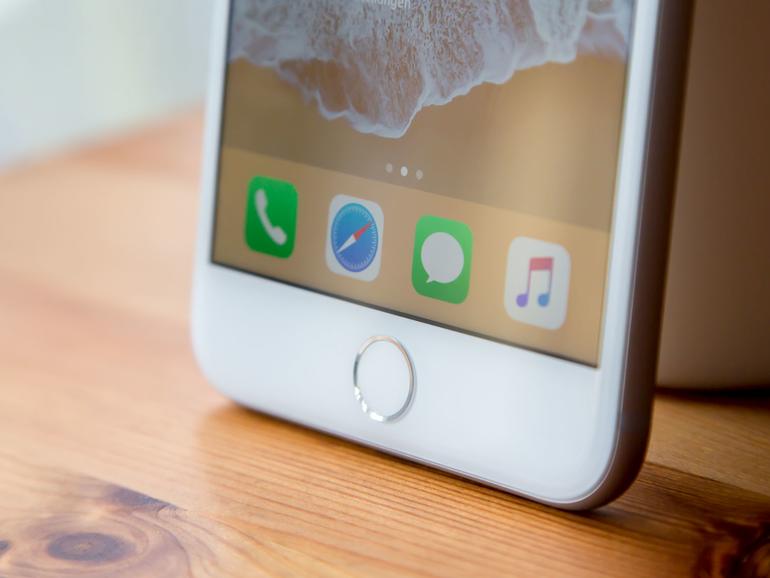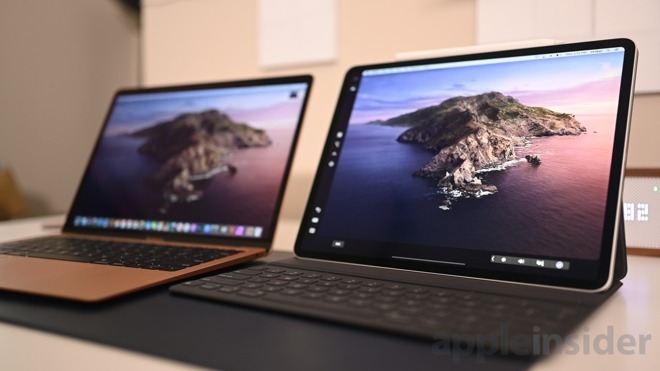- How To Update Macos Catalina On Unsupported Mac
- Mac Os Catalina On Unsupported Mac
- Install Macos Catalina On Unsupported Mac
- Get Macos Catalina On Unsupported Macs
- Install Macos Catalina On Unsupported Mac
Catalina (10.15) is the latest stable release of Apple's macOS. You will see some of the recent apps can only work on this version. And you have to upgrade macOS accordingly. However, only a small portion of Mac models are eligible for direct upgrade offered by Apple. What 's to do if you want to use Catalina on an unsupported Mac? This tutorial will show you how to install macOS Catalina on an unsupported Mac model.
1. Why macOS Catalina?
Yet another strong motivation to upgrade and employ an old unsupported Mac patched by @dosdude1 or 0403979. AFP reports - 'Some factories across China are using forced Uighur labour under a state-sponsored labour transfer scheme that is tainting the global supply chain.' The brands, included 'Apple, BMW, Gap, Huawei, Nike.
macOS Catalina is the last iteration of the macOS series, after which Apple has now moved to macOS 11 Big Sur. Not all Mac users will install Big Sur so soon after its release because they'll be waiting for all the major bugs to be fixed in an 11.x update. But there's also another reason: Big Sur is only meant for certain models of MacBooks and iMacs.
Macos Catalina Beta On Unsupported Macs. The macOS Catalina runs typically on all the Macs that run Mojave. Even if it doesn’t, as well, you can definitely install macOS Catalina on your unsupported Mac. Catalina requires at least a 4GB of memory an addition 2 GB which runs Mojave. The macOS Catalina is one of the incredible operating systems. Click Reinstall macOS and wait for macOS Catalina to be installed on your machine. After the installation, restart the Mac in recovery mode and select the bootable drive once again. This time, select macOS Post Install. This will install all the third-party patches on your Mac that’ll make Catalina work. Thankfully, there's a way to patch macOS Catalina on your older system, which extends the list of supported devices. However, you will need to download macOS Catalina dmg file, burn it to a USB drive, and then install Catalina on your Mac by booting from the USB installer. The process is shown below and it works with the following unsupported. MacOS Catalina Patcher. The easy way to run macOS Catalina on your Unsupported Mac. 2008 Mac Pro 3,1 AMD GPU Support.

And some of the apps can not work on an old version of macOS, such as High Serria or Serria. You will receive the following messages if you try to run an app that only supports Catalina and later versions. You have to upgrade macOS to Catalina in such a case if the app is very important for you.
The same is true of Catalina as well, but Catalina is a more mature version and brings a lot of features to the table, such as the improved Siri, customizable smart lists, the new AI-based Photos app, better Notes search, refreshed Safari, and so on. Probably the most important change is the deprecation of iTunes into three separate entities for Music, TV, and Podcasts. That's why a large portion of users still prefer Catalina even if their device is compatible with Big Sur.
2. Official Support List by Catalina
Unfortunately, as in the case of Big Sur, macOS Catalina also does not support very old models of Apple devices. Here is the official support list. If your device is from an older year, you cannot upgrade to macOS Catalina the usual way.
- MacBook (Early 2015 or newer)
- MacBook Air (Mid 2012 or newer)
- MacBook Pro (Mid 2012 or newer)
- Mac mini (Late 2012 or newer)
- iMac (Late 2012 or newer)
- iMac Pro (2017)
In addition, your video card will need to be pre-metal, and it works with specific series of GeForce, Radeon, and Intel graphics cards.
3. Unofficial Support List by Catalina
Thankfully, there's a way to patch macOS Catalina on your older system, which extends the list of supported devices. However, you will need to download macOS Catalina dmg file, burn it to a USB drive, and then install Catalina on your Mac by booting from the USB installer. The process is shown below and it works with the following unsupported Mac models.
- MacBook Pro Early 2008 or newer
- MacBook Air Late 2008 or newer
- Mac Mini Early 2009 or newer
- MacBook Early 2009 or newer
- iMac Early 2008 or newer
4. How to Create a macOS Catalina Bootable USB
UUByte DMG Editor is a fantastic disk image management utility for Apple's DMG files. Not only can you burn a DMG to a range of media storage devices but you can also extract files without having to mount the DMG as a virtual drive. Besides, it is a cross-platform application that works well on both Windows and macOS. This means you can create a bootable Catalina USB installer on a Windows PC.
Although it is meant for experienced users, the user interface, navigation, and feature layout have been simplified so even beginners can jump right in and get comfortable with the software. Here's the process in the form of steps you can duplicate on your Mac.
Warning: Please back up your Mac first before taking into real actions. This might brick your EFI chip with multiple EEPROM definitions.
Step 1: Download DMG file of macOS Catalina from the following sources. These site offer the latest version of the macOS Catalina, please download a copy to your Mac.
- Download Link 1: https://themacgo.com/macdownload/
- Download link 2: https://drive.google.com/drive/folders/NW4r628CM

Step 2: Insert a USB drive and install UUByte DMG Editor application on a Mac or PC.

Step 3: Launch UUByte DMG Editor and select the 'Burn' option on the main page.
Step 4: On the inside page, hit the 'Browse' button and select the DMG file from your local storage. Check if your USB drive is displayed in the field below the DMG image field. If not, click on 'Change' button to select the correct drive.
Step 5: All you need to do is name your drive and hit 'Burn' button. You will see the progress as the USB installer is created.
When you see the success message, close UUByte DMG Editor and eject the drive. It is now ready for you to use in the macOS Catalina installation process described in the next section.
5. Install macOS Catalina on Unsupported Mac
Now, follow the steps shown below carefully to load the installer, erase your local disk, and install macOS Catalina from USB drive you created in above step.
Step 1: Boot Mac from USB Installer
To do this, insert the installer and hold down the Option key as you restart your Mac. In the Startup Manager, choose the drive name that you used in the installer creation process. You won't be able to use the mouse here so use the arrow key to select your drive and hit Enter.
Step 2: Wait Catalina Installer to Be Loaded
This could take a few minutes so be patient. Don't worry if the screen goes blank or if the progress bar looks like it's frozen. Don't do anything at this point.
Step 3: Erase Local Hard Drive
When macOS Catalina installation wizard is loaded, you'll be able to see macOS Utilities window with several options. Choose Disk Utility option and then Continue. In Disk Utility, choose your hard drive (usually Macintosh HD) and hit Erase, which you will see in the top menu bar.
In the popup window, make sure the Format is set to APFS and hit Erase, leaving everything else as it is. You may want to change the name of the local HDD but you can leave it as Macintosh HD. Exit Disk Utility, which will take you back to the macOS Utilities window.
Step 4: Start Installing Catalina on Unsupported Mac
This time, in macOS Utilities, please choose Install macOS and then hit Continue. Hit Continue again to confirm the operation. When you see the license terms, hit the Agree option. You may need to do this twice for confirmation. Choose Macintosh HD (or however you renamed your local hard drive) and hit Install.
Wait for the installation to complete. This may take up to an hour or more depending on your system configuration and other factors.
Frequently Ask Questions
There are several known issues when installing macOS Catalina on ansupported Mac. However, it has less impact on daily usage.
No Tab for All Photos in Photos App. You will find this minor issue when using Photos app on Catalina. To fix this, you should right click any photo in Photos app and select 'Show in All Photos' from pop-up menu.
GPU acceleration not available. You will see a performance downgrade when playing games because the full video accleration is not available in Radeon HD 5xxx or 6xxx series video card.
WiFi not working. If you could not join any WiFi network, then you should use this command to fix it manually: sudo networksetup -setairportnetwork en1 SSID PASSWORD
Summary
Definitely, it is not a simple task to install macOS Catalina on an unsupported Mac. You have to complete the task manually, which is more challenging than a direct update being pushed by Apple official. However, the above tutorial proves to be fine on most of unsupported Macs we listed in Section 3. Now, enjoy using macOS Catalina on an officially unsupported device!
How To Update Macos Catalina On Unsupported Mac
- Jan 25, 2019 All of the new and old Mac users will experience the new operating system update that will be widely accessible through the App Store and software update. This software update will provide the opportunity to install the macOS Catalina with all the superb features on their Macs.
- How to keep older Macs secure: a geeky approach (run Catalina on unsupported Macs) Posted on October 8th, 2019 by Jay Vrijenhoek. Note: This article was originally written for macOS Mojave, and has been adapted for macOS Catalina. From a security standpoint, using the latest version of macOS—the Mac operating system—is always preferred.
Helps you create a bootable USB drive for macOS Catalina which will work with older Macs, not officially supported by the operating system
But I would rather buy a second generation silicon mac to truly take advantage of the new OS features and remain on Catalina (or HS) for everything else. Or just bootcamp your old unsupported mac to windows 10 as the main OS and macOS as secondary to bring out some of its latent potential to 2021. I could not get it to properly install on imac 9,1. Mac OS X Server 1.0 is a operating system developed by Apple Computer.Released on March 16, 1999, it was the first version of Mac OS X Server. It was Apple's first commercial product to be derived from 'Rhapsody'—an eventual replacement for the classic Mac OS derived from NeXTSTEP's architecture (acquired in 1997 as part of Apple's purchase of NeXT) and BSD-like Mach kernel.
What's new in macOS Catalina Patcher 1.4.4:
- Fixed compatibility with Catalina version 10.15.5
macOS Catalina Patcher (formerly macOS Mojave Patcher, macOS High Sierra Patcher and macOS Sierra Patcher) is a small yet powerful tool that can help you create a bootable USB drive that can be used to install macOS Catalina on Mac computers older than mid 2012, basically acting as a macOS Mojave patch for unsupported Macs.
The tool extends the list of compatible hardware to the Mac Pro, iMac and MacBook Pro computers released in early 2008, Aluminum Unibody MacBooks or MacBooks Air manufactured in late 2008, or white MacBooks and Mac Minis produced in early 2009.
Get the macOS Catalina Installer app and make sure you have access to a compatible USB drive
To be able to use the app you must make sure that you have a USB drive that has at least 8 GB available, and that you have the macOS 10.15 Catalina installer app on your Mac.
Macos Catalina On Unsupported Macs
Mac Os Catalina On Unsupported Mac
Note that you can download the macOS image from the Mac App Store application only on a machine that supports Catalina: otherwise, you must find an alternative solution.
For your convenience, macOS Catalina Patcher offers you the possibility to download the image through its interface: just navigate to the Tools menu.
At the same time, you must prepare the USB drive with the help of the built-in Disk Utility application: just format the disk using the Mac OS Extended (Journaled) standard.
Easy to configure patcher tool that can create bootable macOS Catalina USBs
Within the main window, you must simply load the macOS 10.15 image you want to use and select the target USB drive. The app will verify the image to make sure everything is OK, and all you have to do is press the Start Operation button.
You have the option to monitor the process in the macOS Catalina Patcher main window, and the utility lets you know when the task is complete.
Mac Os Catalina On Unsupported Mac
Worth mentioning is that after you install the OS by using the macOS Catalina Patcher bootable drive, you must launch the macOS Post Install utility to get access to patches specifically designed for your Mac’s model.
Make a bootable drive that allows you to install Catalina on unsupported Macs
Mac Os Catalina On Unsupported Macs Os
Bottom line, if your Mac has been manufactured before early 2008, chances are that you will not be able to install macOS Catalina on your computer.
All things considered, macOS Catalina Patcher is a small and user-friendly utility designed to help you bypass this limitation if your Mac is not in macOS Catalina's compatibility list, created to be used as an unsupported Mac Mojave patch.

Filed under
macOS Catalina Patcher was reviewed by Sergiu GatlanInstall Macos Catalina On Unsupported Mac
SYSTEM REQUIREMENTS- 64-bit processor
- 16 GB USB drive
- macOS Mojave Installer App
- Early-2008 or newer Mac Pro, iMac, or MacBook Pro
- Late-2008 or newer MacBook Air or Aluminum Unibody MacBook
- Early-2009 or newer Mac Mini or white MacBook
- Early-2008 or newer Xserve
macOS Catalina Patcher 1.4.4
add to watchlistsend us an updateInstall Macos Catalina On Unsupported Macs
- runs on:
- Mac OS X 10.6 or later (Intel only)
- file size:
- 223.4 MB
- filename:
- macOS Catalina Patcher.dmg
- main category:
- System Utilities
- developer:
- visit homepage
Mac Os Catalina On Unsupported Macs Drive
top alternatives FREE
top alternatives PAID
Get Macos Catalina On Unsupported Macs
